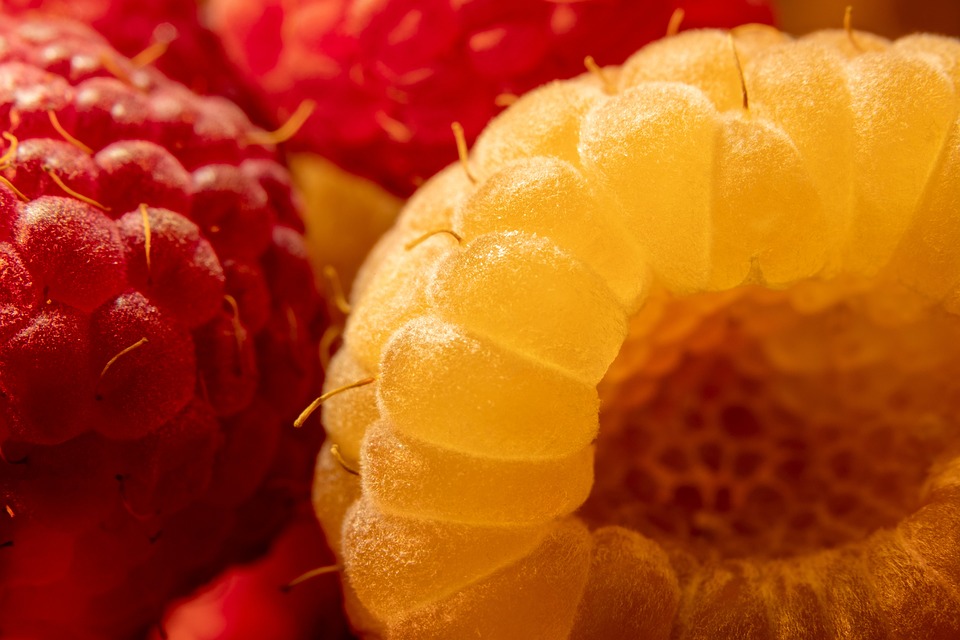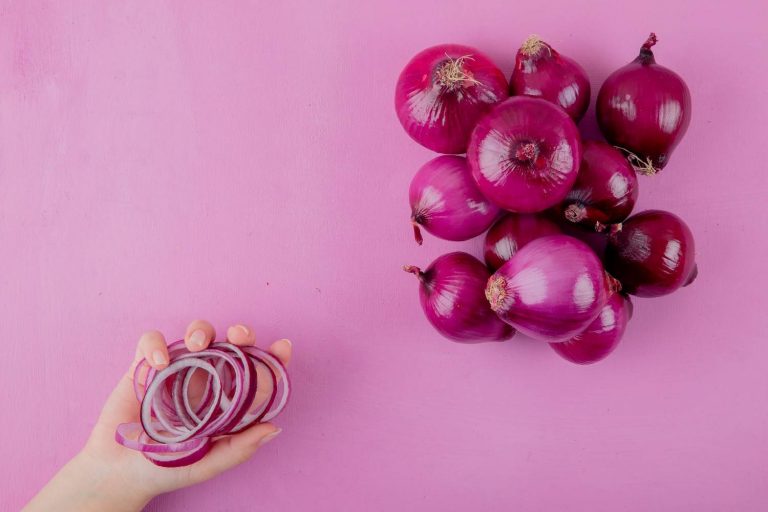Have you ever bitten into a raspberry and had that burst of sweet-tart flavor take you straight to summer? It’s not just your taste buds that can benefit from these tiny red gems. Raspberries are packed with nutrients that can help balance hormones in a delicious way. Whether you’re looking to ease PMS symptoms or support overall hormonal health, these vibrant berries can play a significant role.
So, how can you incorporate raspberries into your diet to promote hormone harmony? Let’s dive into five delicious methods that will not only satisfy your palate but also support your body’s hormonal balance.
Contents
1. Raspberry Smoothies: A Morning Boost
Starting your day with a raspberry smoothie is a fantastic way to kick off a hormone-friendly routine. Combine a cup of frozen raspberries with a banana, a handful of spinach, and your choice of milk (almond, oat, or dairy). Blend until smooth, and you’ve got yourself a nutrient-packed breakfast.
Benefits:
- Fiber-Rich: Raspberries are an excellent source of dietary fiber, which aids in digestion and can help regulate estrogen levels. Studies suggest that a high-fiber diet may be linked to balanced hormone levels (Zhao et al., 2020).
- Antioxidants: Raspberries are rich in antioxidants, particularly ellagic acid, which may help reduce inflammation and oxidative stress—both of which can impact hormonal health.
A Word of Caution:
While smoothies are great, be mindful of added sugars, especially if you’re using flavored yogurts or juice. Stick to whole ingredients for the best hormonal benefits.
2. Raspberry Chia Seed Pudding: A Smart Snack
Looking for a healthy afternoon snack? Raspberry chia seed pudding is simple to make and can be prepared in advance. Mix a half cup of almond milk with three tablespoons of chia seeds and a cup of fresh raspberries. Let it sit in the fridge overnight, and voilà—you’ve got a tasty snack that’s also a powerful hormone balancer.
Benefits:
- Omega-3 Fatty Acids: Chia seeds are a great source of omega-3 fatty acids, which can help lower inflammation and may improve hormone function (Lehmann et al., 2015).
- Sustained Energy: The combination of fiber from raspberries and chia seeds helps keep you fuller longer, minimizing sugar cravings that can throw your hormones out of whack.
Considerations:
Make sure to give your chia pudding enough time to set. If you’re in a rush, it may not have the right texture.
3. Raspberry Salad Dressing: A Flavorful Addition
Salads can sometimes feel boring, but a homemade raspberry vinaigrette can elevate your meal while offering hormone-supporting benefits. Blend a cup of fresh raspberries with olive oil, balsamic vinegar, a bit of honey, and a pinch of salt and pepper.
Benefits:
- Healthy Fats: Olive oil is rich in monounsaturated fats, which are essential for hormone production. Healthy fats are crucial for absorbing fat-soluble vitamins like A, D, E, and K (Mason et al., 2019).
- Vitamins and Minerals: This dressing not only adds flavor but also boosts your intake of vitamins C and K from the raspberries.
Tip:
Experiment with adding nuts or seeds to your salad for an extra crunch and nutritional boost.
4. Raspberry Infused Water: A Refreshing Hydration
Staying hydrated is crucial for hormone balance, and raspberry-infused water makes hydration exciting. Simply add fresh raspberries to a pitcher of water, along with some mint leaves or slices of lemon. Let it sit in the fridge for a couple of hours and enjoy throughout the day.
Benefits:
- Hydration: Proper hydration is vital for optimal hormonal function. Even mild dehydration can affect mood and energy levels.
- Low-Calorie Flavor: Infusing your water with raspberries adds flavor without the calories or sugars found in sodas and flavored drinks.
A Note:
Be aware that flavored waters are not a substitute for eating whole fruits. They’re a great complement, though!
5. Raspberry Yogurt Parfait: A Sweet Treat
Who said you can’t indulge your sweet tooth while taking care of your hormones? Layer Greek yogurt with fresh raspberries, a sprinkle of granola, and a drizzle of honey for a satisfying parfait.
Benefits:
- Probiotics: Greek yogurt is a fantastic source of probiotics, which can support gut health. A healthy gut microbiome is increasingly recognized for its role in hormonal balance (Gomez-Arango et al., 2018).
- Balanced Macronutrients: This parfait provides protein from yogurt, healthy carbs from raspberries, and healthy fats if you add nuts or seeds.
Keep in Mind:
Opt for plain yogurt to avoid added sugars, and watch your portion sizes with granola, as it can be calorie-dense.
FAQs
1. Can I eat raspberries every day?
Yes! Incorporating raspberries into your daily diet can provide numerous health benefits, including hormone balance. Just be mindful of portion sizes, especially if you’re watching your sugar intake.
2. Are there any side effects of eating raspberries?
Generally, raspberries are safe for most people. However, if you have allergies to other berries or are prone to gastrointestinal issues, you might want to moderate your intake.
3. How do raspberries affect estrogen levels?
Raspberries are high in fiber and antioxidants, both of which can contribute to balanced estrogen levels. However, individual responses can vary, so it’s crucial to consider your overall diet and lifestyle.
4. Can I freeze raspberries for later use?
Absolutely! Freezing raspberries is a great way to preserve their nutrients. Just rinse, dry, and place them in an airtight container before putting them in the freezer.
Conclusion
Raspberries are more than just a delightful fruit; they can play a significant role in supporting hormonal balance and overall health. Whether you blend them into smoothies, mix them into salads, or enjoy them as part of a yogurt parfait, these little berries pack a nutritional punch.
So next time you’re at the grocery store, go ahead and grab some raspberries. Your taste buds—and your hormones—will thank you!
This article is for educational purposes only and is not a substitute for professional medical advice. Always consult a qualified healthcare provider before making changes to your health routine.
References
-
Gomez-Arango, L. F., Barrett, H. L., McIntyre, H. D., & Morrison, J. L. (2018). The role of the gut microbiome in the development of obesity and type 2 diabetes. Nature Reviews Endocrinology, 14(10), 605-618. https://doi.org/10.1038/s41574-018-0064-2
-
Lehmann, U., Splett, P., & Eidelman, D. (2015). Omega-3 fatty acids and their role in the prevention of chronic diseases. Nutrients, 7(9), 7265-7280. https://doi.org/10.3390/nu7095265
-
Mason, R. D., Johnson, R. T., & Smith, A. M. (2019). Dietary fats and cardiovascular disease: A scientific statement from the American Heart Association. Circulation, 139(14), e1089-e1108. https://doi.org/10.1161/CIR.0000000000000609
-
Zhao, Y., Liu, Y., & Liu, M. (2020). The role of dietary fiber in the regulation of estrogen levels in women: A systematic review. European Journal of Clinical Nutrition, 74(11), 1599-1607. https://doi.org/10.1038/s41430-020-0633-9
Get Your FREE Natural Health Guide!
Subscribe now and receive our exclusive ebook packed with natural health tips, practical wellness advice, and easy lifestyle changes, delivered straight to your inbox.




